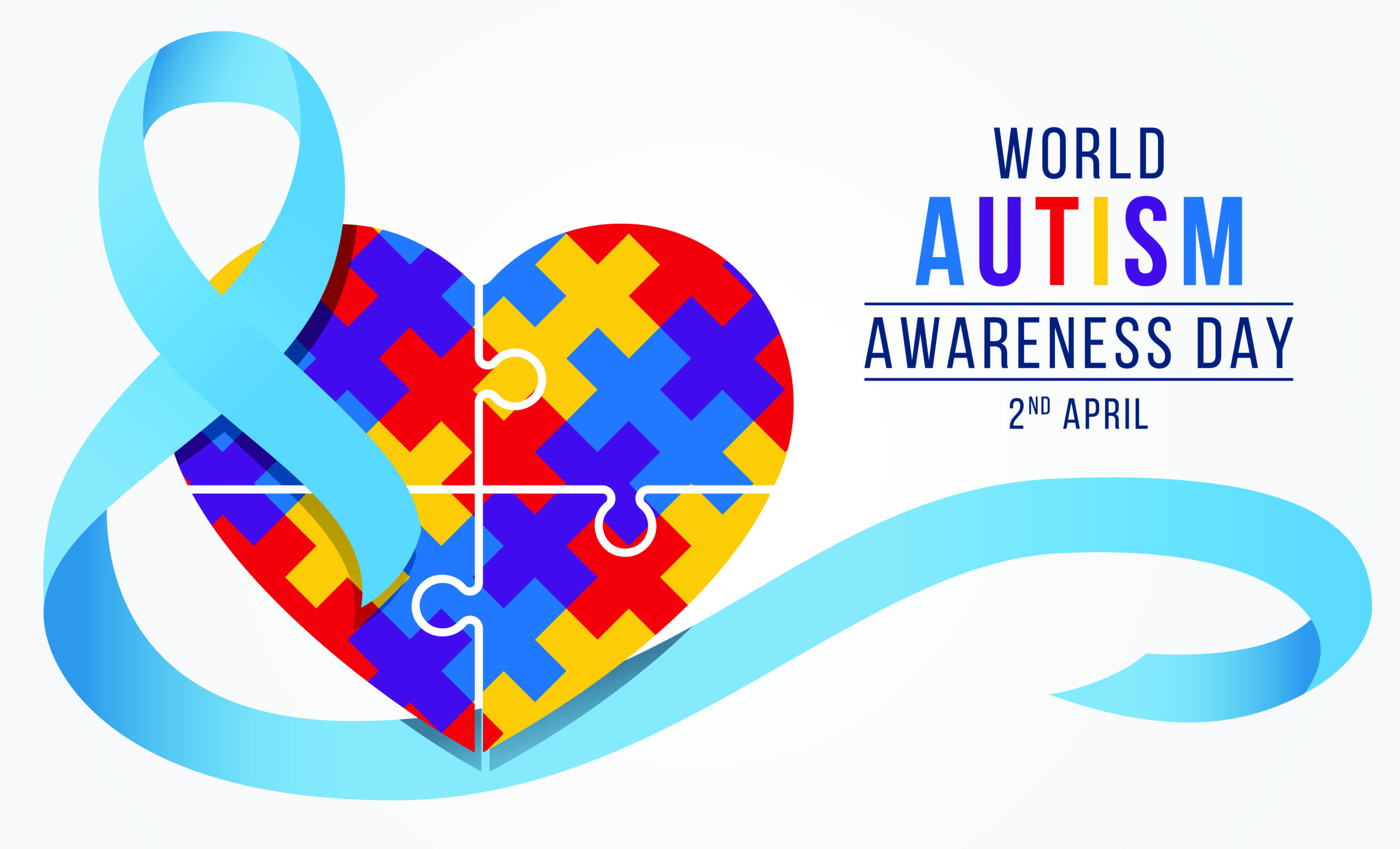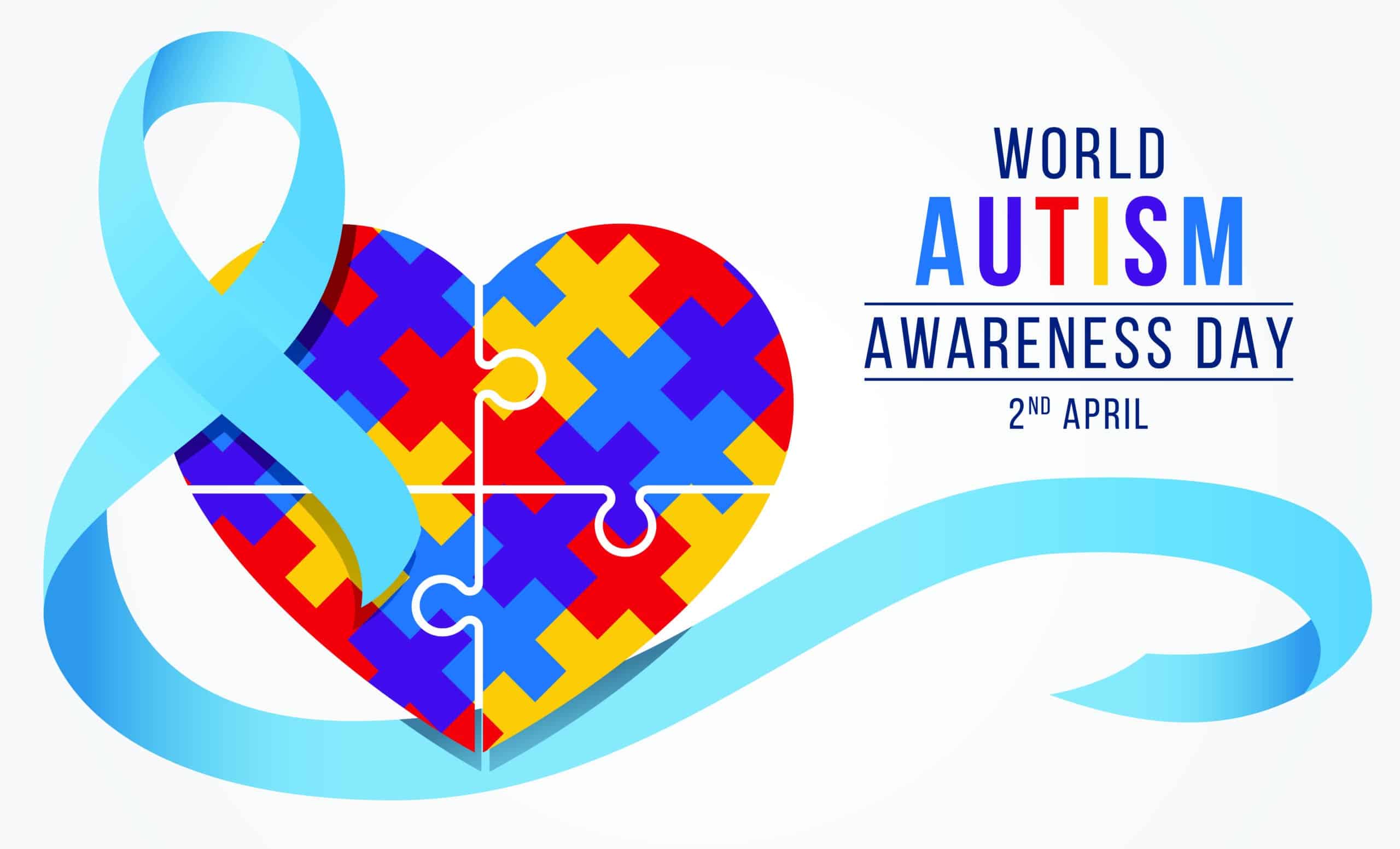
Autism also referred to as Autism Spectrum Disorder (ASD) is a serious developmental disorder that damages the ability to communicate and interact. It impacts the nervous system and affects the overall cognitive, emotional, social, and physical health of the affected individual. Hence, the major complications occur with the person’s communication and behavior.
Children with autism have a disability that affects the brain. For some children, that disability is mild. For others, it is severe. The term “spectrum” is used to emphasize that autism presents differently in every single person. People with autism have a wide range of challenges as well as abilities. Children with autism might have many abilities and interests that are unaffected by autism.
There is not one autism but many subtypes, mostly influenced by a combination of genetic and environmental factors. Because autism is a spectrum disorder, each person with autism has a distinct set of strengths and challenges. The ways in which people with autism learn, think and solve problems can range from highly skilled to severely challenged. Some people with ASD may require significant support in their daily lives, while others may need less support and, in some cases, live entirely independently.
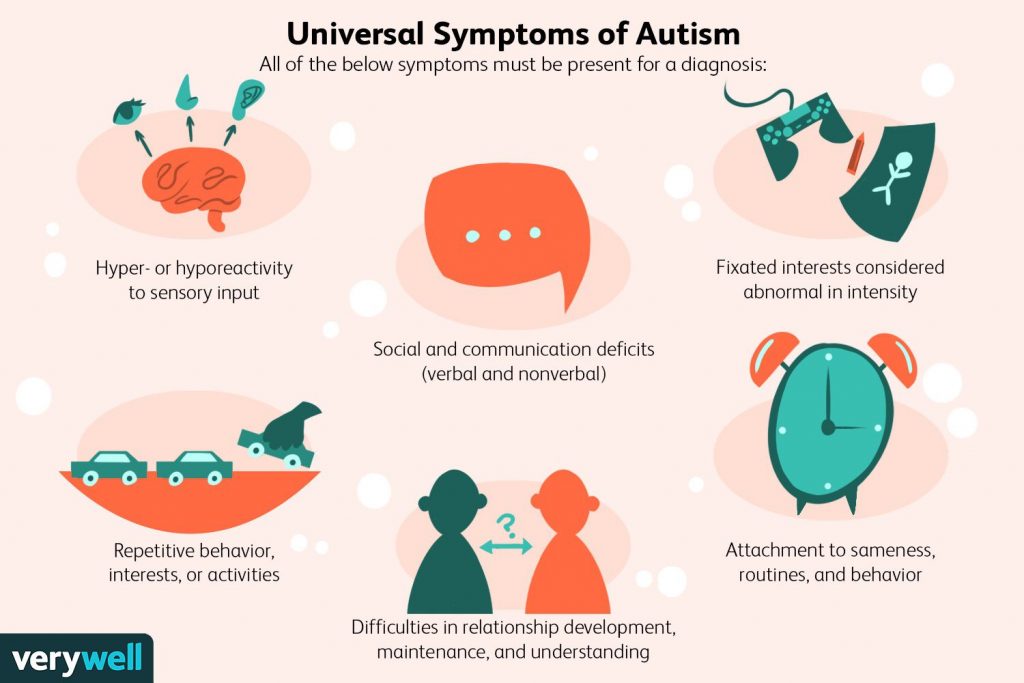
Signs of Autism
Signs of autism usually appear by age 2 or 3. Some associated development delays can appear even earlier, and often, they can be diagnosed as early as 18 months. But many children with autism have problems with:
- Communication
- Social interaction
- Behavior
- Repetitive activities or restricted interests
- Dealing with sensory input
Causes of Autism
People don’t know what causes autism but research suggests that genes play a strong part. Also, there are several factors that can influence the development of autism, and it is often accompanied by sensory sensitivities and medical issues such as gastrointestinal (GI) disorders, seizures or sleep disorders, as well as mental health challenges such as anxiety, depression and attention issues.
Misconception about Autism
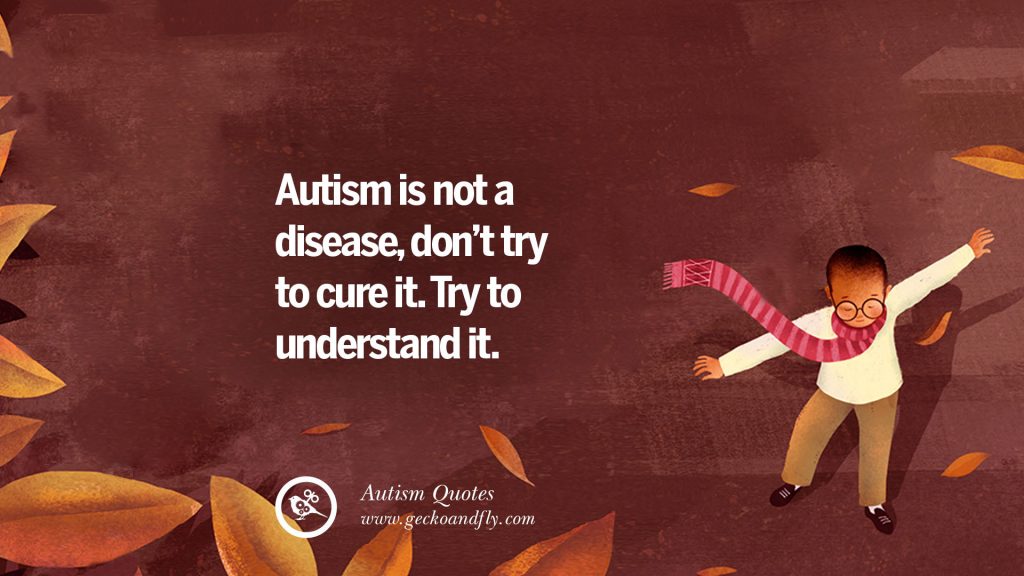
Autism is not an illness. Having a child with autism does not mean he/she has any illness or disease. It means their brain works in a different way from other people. As said earlier, genetics has a strong play in influencing autism, and once a child is autistic, he/she is autistic for their whole life. Nobody knows what causes autism, or if it has a cause. It can affect people in the same family. So it may sometimes be passed on to a child by their parents.
Autism is NOT caused by:
- Bad parenting
- Vaccines, such as the MMR (Measles, Mumps, Rubella) vaccine
- Diet
- An infection you can spread to other people
Autism is not a medical condition with treatments or a “cure”. But your child will need support to help him/her with certain things. Utmost support, especially on the emotional front, is required by those dealing with autism, and family specifically parents play a very crucial role if their kids are autistic. It is not easy for the child to express feelings and ideas. It is a struggle to bond with one’s own family or friends.
What are the challenges of autism?
Autism is an everyday challenge and can eventually take a toll on overall health. Children with autism are often exposed to bullying which can cause them anxiety and affect them in various ways. Parents too find it challenging to understand their child’s behavior. It is not enough for autistic children to receive the right kind of treatment but also to have the right kind of support. For this, education about autism, its treatment, the way to handle the kids, and learning about the condition is a must, especially for parents.
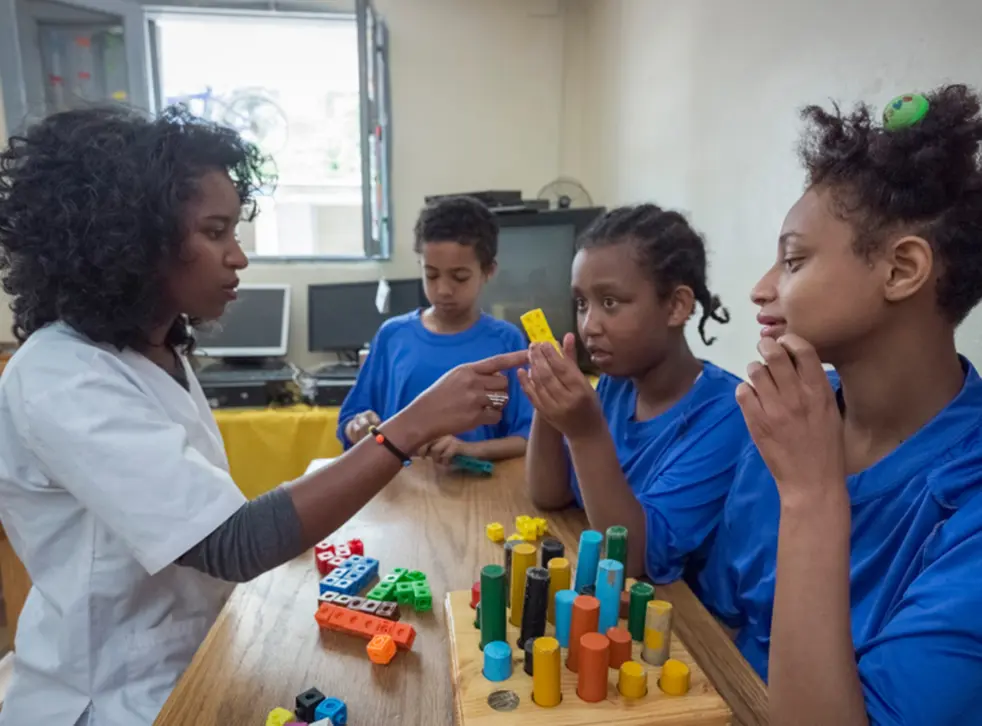
Autistic children have a better chance of imbibing the required skills when parents actively participate. Parenting a child with autism is quite challenging but parents’ involvement increases the consistency in assuring their child receives the right guidance and that guidance is better implemented even at home after the sessions. It is essential because parents are also the ones who are more familiar with their child, who first observe the developmental issues.
How to care for a child with autism
Caring for a child with autism can be challenging. Children with autism often find it hard to understand simple instructions and social behavior.
Treatments include;
Speech and language therapy: to help your child communicate better
Occupational therapy: to help them deal with everyday activities
Psychological therapies: to help with social skills, emotions, and stress
Do not delay in starting the necessary treatment.

Parents can help by;
- Always be supportive and involved.
- Constantly practice at home the same exercises or things he/she has learned during therapy or a counseling session.
- It is also very important to be observant of your child’s behavior, the triggers that affect them adversely, the things that they would enjoy, their strengths, weaknesses, etc.
- Autistic children perform way better when they are in a constant highly-structured routine, so have a pre-planned schedule for your child and work according to that.
- As a parent, you must also know the best form of learning for your child. Most importantly, always research well and get an efficient therapist for your child.
- If your child throws a tantrum, try to patiently understand the reason for it.
- Share your observations with professionals that can create a program for the child.
- It is very crucial and significant for parents and professionals to work in collaboration for the benefit of the child. This ensures that the child gets faster and better results.
Extracted from: Autismspeaks, Klinik Shakthi, Pregnancybirthbaby, NHS
